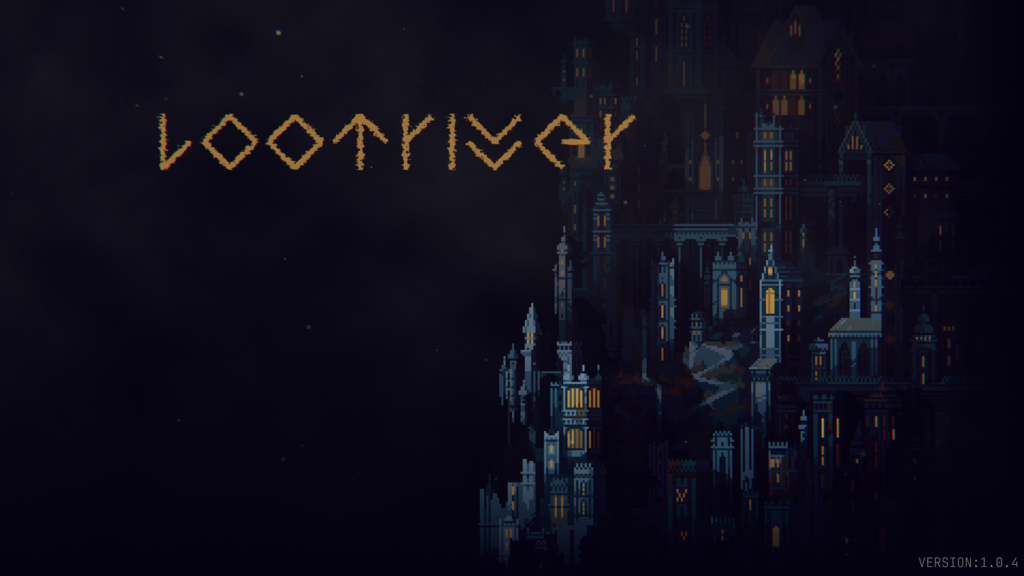
There are a lot of games that claim to be ‘Souls-like’ coming out. In point of fact, the sheer volume of comparisons has actually become tiresome. But Loot River from Straka.studio is trying to change all that. While they do compare Loot River to a Souls experience, it’s mixed with Tetris, a remarkably novel idea.
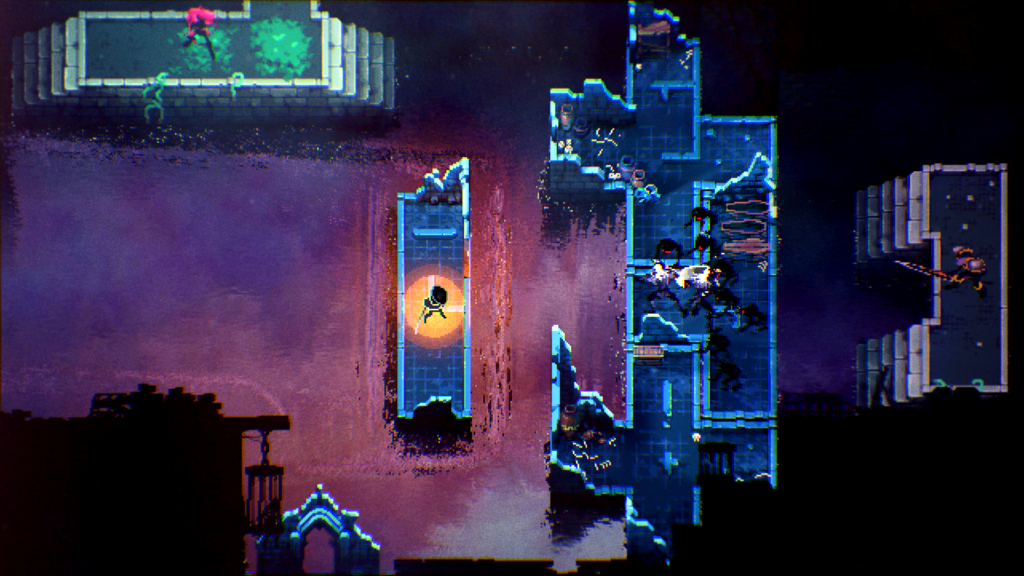
But how do you combine third person action, a rogue-like loop, high difficulty and puzzle games in a way that’s playable? Turns out it’s easier than you might expect and fairly challenging at the same time. Loot River takes a minimalist plot approach, doling out tidbits to entice you with the promise of further dark storyline. There’s not a lot of depth in the script itself but the visuals and few tantalizing sentences at least pique one’s curiosity.
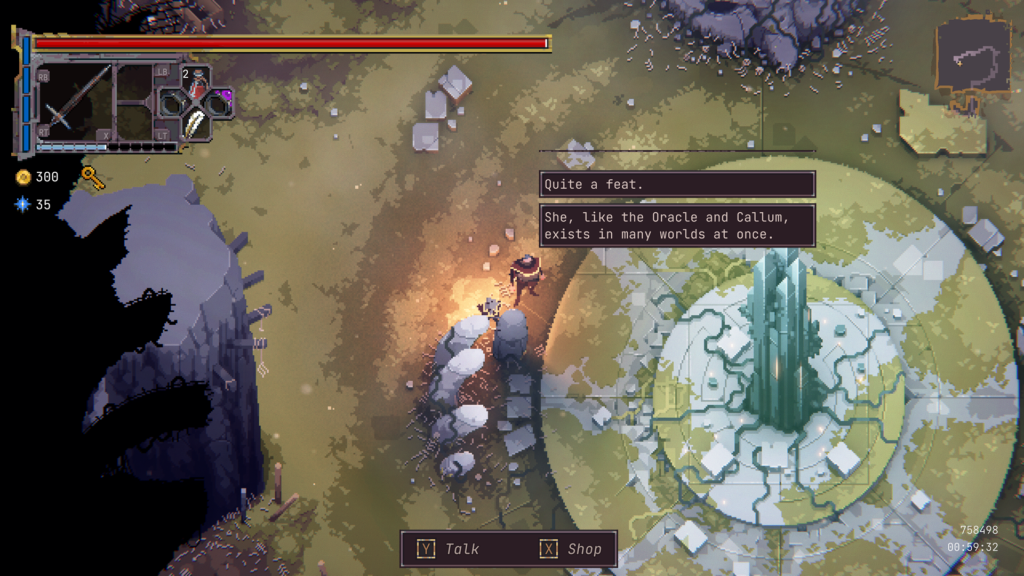
As soon as you start walking through the top-down pixel art environments, you’ll find that things become challenging quickly. The combat and gameplay of Loot River challenges you to think in multiple styles at once, relegating gameplay to the left stick, face, and shoulder buttons and the puzzle elements to the right stick. Simply stand on a section of floor and if it’s moveable, you can move it up, down, left or right as long as there’s room for the floor. This isn’t like actual Tetris however. You’re not matching blocks to make lines and clear them but instead creating pathways to progress through the levels in order to fight your way through the hordes of enemies and survive long enough to make it back to the hub area and upgrade your character. Survival is definitely harder than you might expect however.
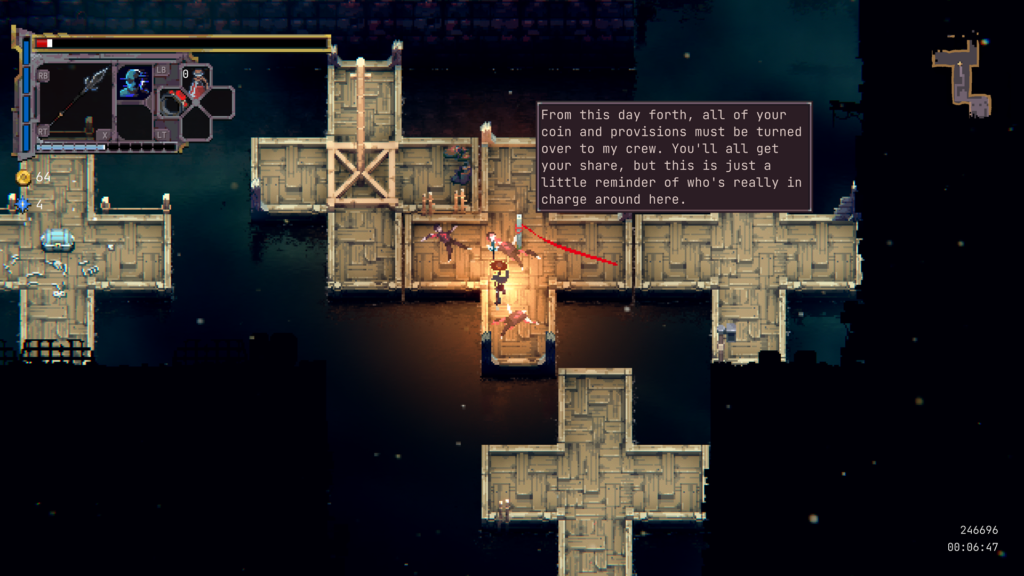
Combat in Loot River is fairly simplistic, with strong and normal attacks, a rolling dodge, and a parry. But the power of enemies definitely has those Souls undertones, challenging players to survive all but the simplest opponents unless they’re constantly on guard. There are some cool ones too, with bomb-throwers, larger enemies with long reaches, and even one that locks in the environmental puzzle pieces so you can’t escape until they’re destroyed. Each enemy has a particular pattern that will circumvent their defenses and let you attack their weak points and once you have the knack for them, it becomes easier to progress. That is, until the enemies start to swarm.
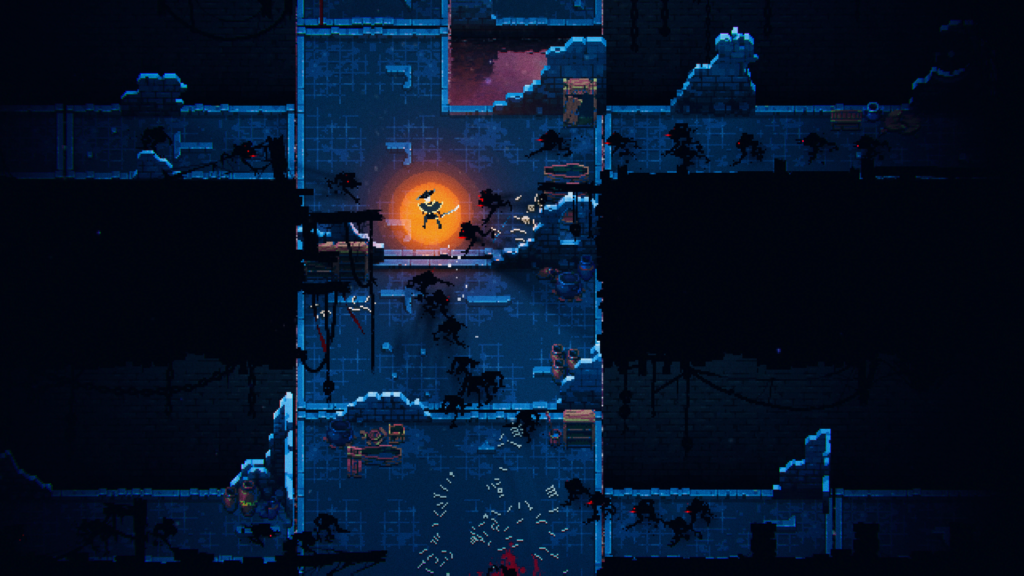
As you player further and further past the introductory levels, Loot River starts to throw more complex mixtures of enemies at you, adding new ones and cornering you with groups of others. Between remembering the attack patterns of each enemy and dodging hordes, things become fairly complex fairly quickly. This is where the Tetris element begins to resurface as a strategy, rapidly switching from the face buttons to the right stick and back to shift the floors, only allowing a couple of enemies at a time onto your platform in order to facilitate effective combat without being overwhelmed. But effective combat is challenging when your controls are also somewhat finicky and timing based and Loot River’s combat consistently feels slightly unresponsive. This is a game that should have a rapid, tight control scheme and it just doesn’t, instead coming off measured and poorly paced due to the combat flow.
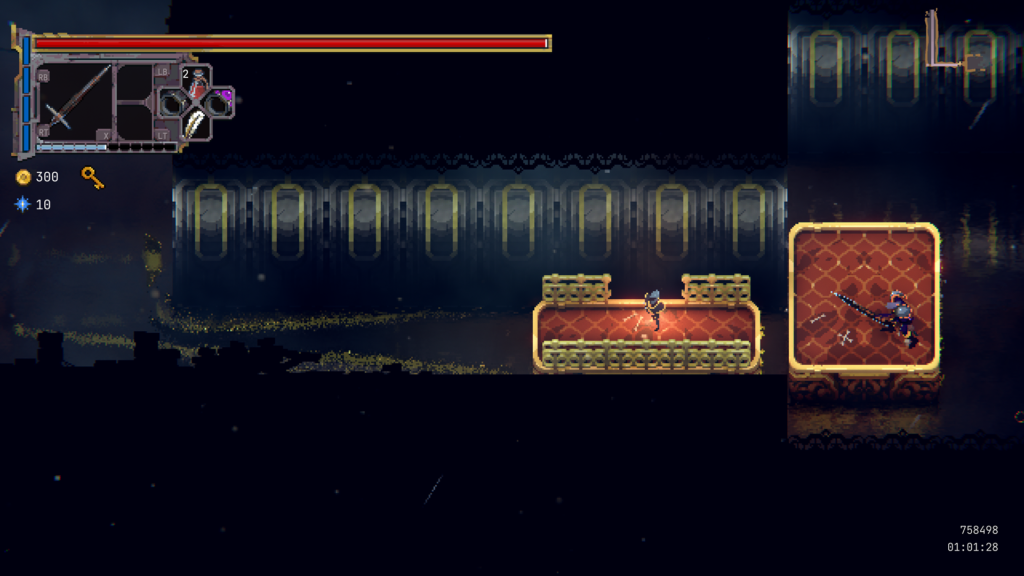
Once you get the hang of manipulating the environment, Loot River becomes somewhat more approachable but it definitely doesn’t become easy, at least on normal difficulty. The main reason for this is the rogue-like progression of the game. Each run in Loot River will net you bonus items that modify your stats, provide extra abilities, and give you the edge needed to proceed further. However, you start back at zero each time and unlike games such as Dead Cells or Rogue Legacy, you don’t get a darn thing to speed things up. Since the items are completely random, this means that you have to slog through the same initial progression of the game over and over with every consecutive death, quickly becoming tedious and frustrating.
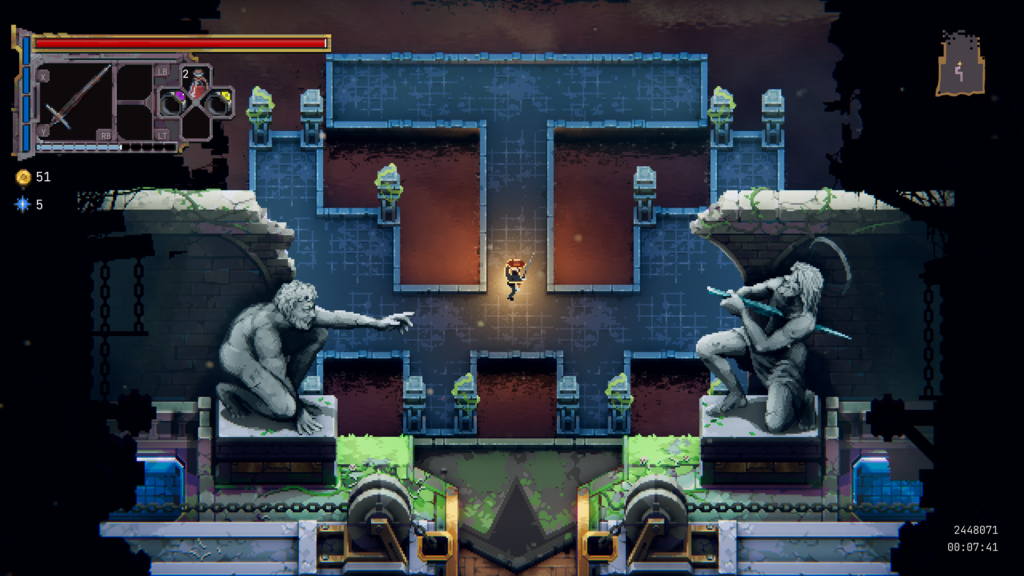
Even if you do manage to survive a level and return back to the hub, you can spend the souls you garner from enemies to buy new weapons and you can eventually even manage to earn permanent upgrades. It’s a slog to do it though and players used to more polished rogue-likes will definitely be put off by the progress loop. After a few runs you’ll even start getting to bosses which definitely manage to be more interesting, even if their patterns tend to be overall fairly predictable. However in addition to progress, there are other issues with Loot River. Occasionally, your character can get stuck in the corners of staircases or on blocks for no apparent reason, and during the course of this review, the only solution to this issue was closing the game and restarting it, a fairly irritating problem.
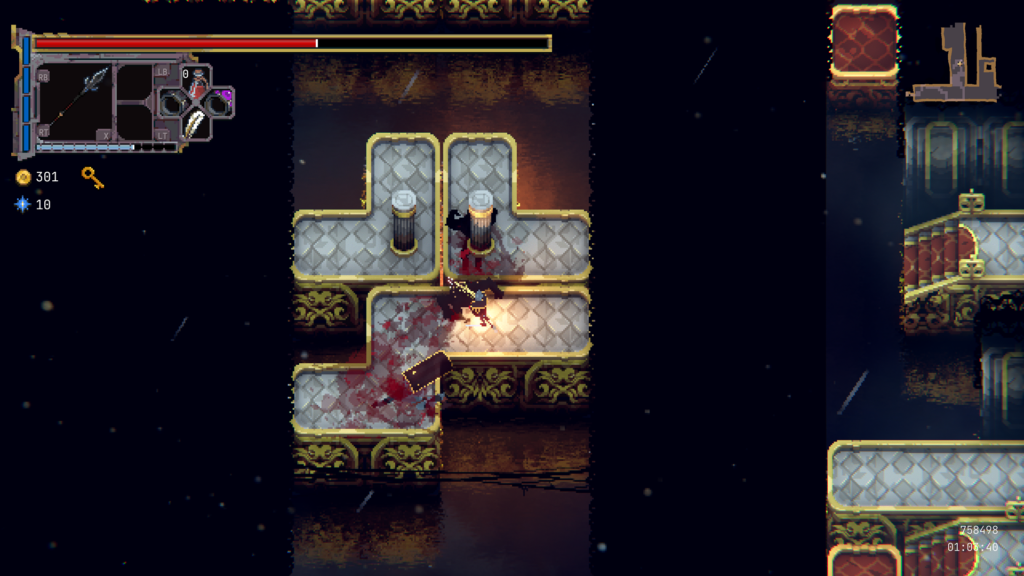
Additionally, the direction in Loot River could use some refinement. For example, buying more than one piece of armor to unlock them is great since it’s time-consuming to build up souls. Unfortunately, you can only actually wear one piece at a time and you have no inventory, which means that if you bought two items, one gets left on the ground. You can’t sell it for money, and you can’t store it in an inventory which you don’t have. At some point it’ll show up entirely at random once you’ve unlocked it, but who knows when that will be and in the meantime you certainly don’t start with that armor available on your next playthrough. Grrr.
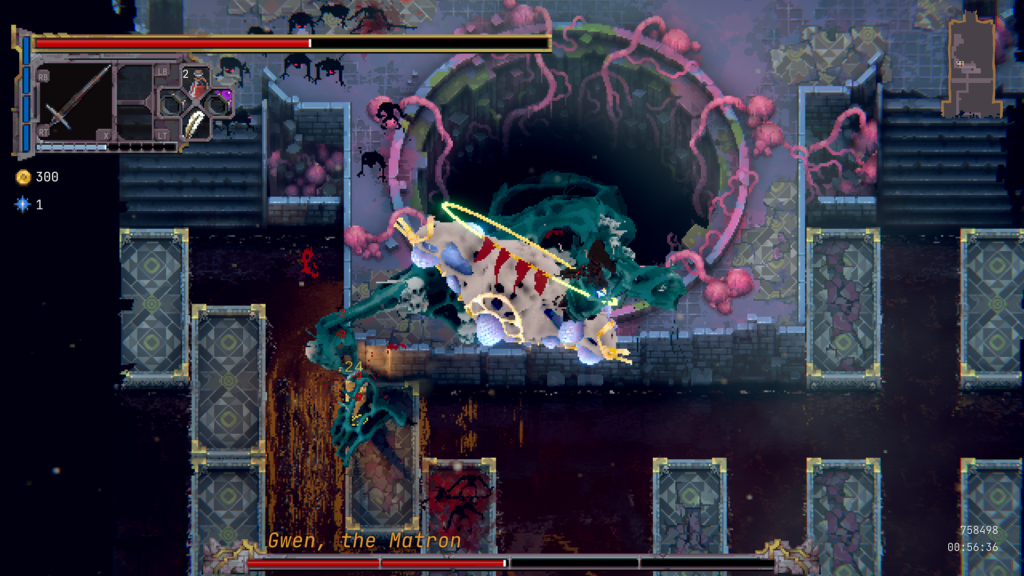
That’s kind of the entire feel of Loot River. The game is beautiful, the sound and character design are excellent, the gameplay concept is novel and intriguing, and the world-building is solid. And with all that going for it, the game feels unfinished, like it could be more if it just tried a tiny bit harder and had a bit more refinement. There’s a lot of unachieved potential here and Loot River could really be fun if the combat was just a bit more responsive, if the puzzle elements were more integral, if the loop wasn’t so gruelling, if if if. There are just a few too many almosts here for the average gamer and that sinks a game that should have simply been more fun. At $25, it’s a bit pricey to just give Loot River a chance but there’s certainly the possibility that it may resonate with you. Let’s hope there’s a patch or two coming to balance out things a bit better because I guarantee you, even if you don’t love Loot River, you’re definitely going to want to love it!
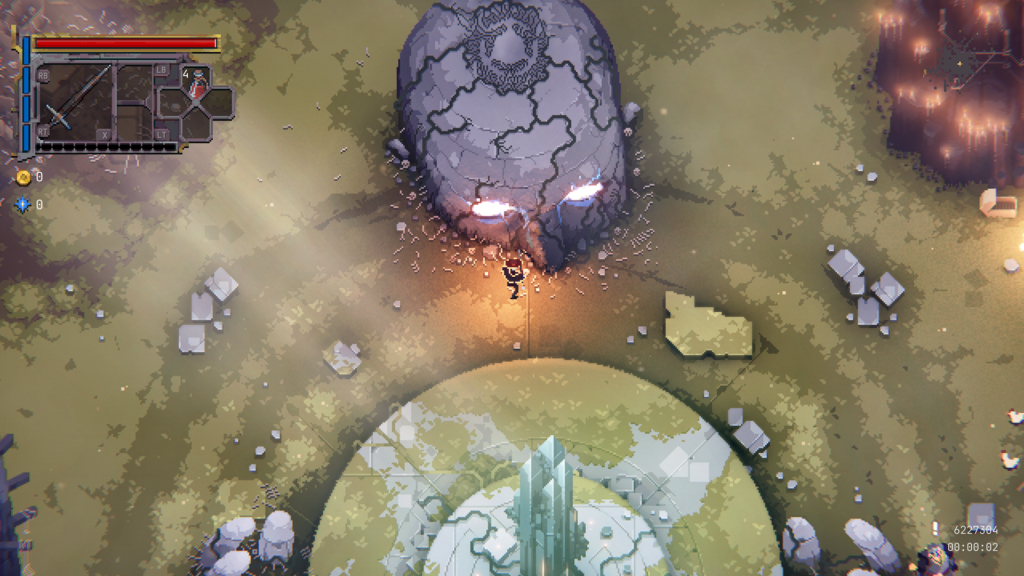
This review is based on a digital copy of Loot River provided by the publisher. It was played on an Xbox Series X using a 1080p Sony TV. Loot River is also available for PC on Steam.

